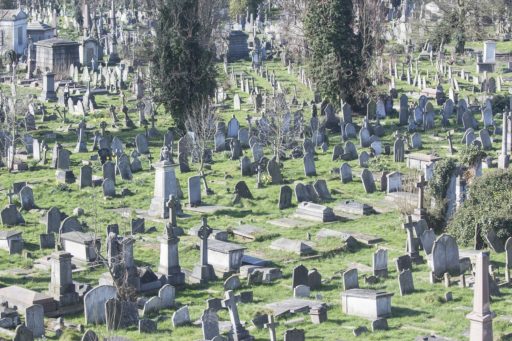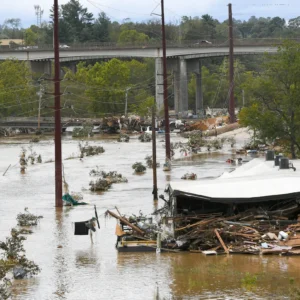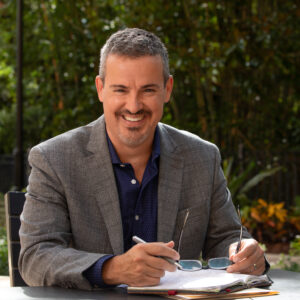I refuse to imagine the loss of my mother.
By the time father died, I had imagined his death for years. For the last ten years of his life, he didn’t get around much. When mother declared that we were going out for dinner, with his walker he’d lurch, inch by inch, to the car, where, after backing into the front seat, he’d reach under his thighs to lift and swing his legs into the car. His legs simply didn’t work anymore. Where he used to smile broadly in family photos, over the last few years he’d gaze in the direction of the camera, his lips closed, flat, a distant look on his face, as if he were already existing—or not existing—somewhere apart from us. I had plenty of time to imagine him no longer being with me, with us. In frequently imagining his death and its aftermath, maybe I was trying to protect myself from his passing.
“What if you knew you’d be the last / to touch someone,” asks Ellen Bass in her poem “If You Knew.” Did my anticipation of his death change the way I behaved with him while he was still alive? I don’t know. Might it change my attitude toward and treatment of others, including annoying others, if I remembered, in every encounter, that they’re going to die?
When a man pulls his wheeled suitcase too slowly through the airport, when the car in front of me doesn’t signal, when the clerk at the pharmacy won’t say Thank you, I don’t remember they’re going to die.
Would we treat each other more compassionately, tenderly, lovingly if we could always see each other as mortal?
What would people look like if we could see them as they are, soaked in honey, stung and swollen, reckless, pinned against time?
It would be easy to see my ninety-year-old mother as “pinned against time.” Less easy to see my eleven-day-old grandson that way—though, of course, he is. But my mother, living alone now, still healthy, thank God, but with diminished appetite, forgetfulness, and sorrow (which she mostly doesn’t show): she’s clearly at the end of her days. I refuse to see her so because, in part, I don’t want to see myself as mortal. “When my mother dies, there’ll be nothing / between me and mortality,” Bass writes in another poem, “Sleeping in My Mother’s Bed.”
Mother was married to my dad for sixty-three years. I’m sixty-eight. For a few years, I had mother to myself: no father, no brothers. Her first marriage? I’d say it was a mistake, but then I’d be a mistake. She dated the man who became her first husband briefly. There was nothing there, mother told me. Then off he went to Korea. What loneliness, what longing led him to send love letters to her while he was gone? Okay, she thought, maybe there is something there. He returned, they married, I was born. Born with a troubled heart: endocardial fibroelastosis. In my earliest hours, I needed medical care. My mother’s Jewish. Her first husband was Christian Scientist. His parents were born Jewish but converted. As a Christian scientist, my father trusted God to heal me, if it was my time to be healed. My mother trusted doctors.
So, doctors I did see. Their short-lived marriage, which mother assured me had been problematic even before I came along, ended.
During a recent phone call, my mother struggled to remember the name of my diagnosis. Before the call ended, she remembered. Within the span of a few minutes, she experienced loss and recovery. She probably forgot something else during that call—it happens all the time—that she wasn’t able to retrieve from her memory. That’s life. She’s alive! Here’s another story about my heart: it was weak, too weak to survive the strain caused by crying. So, I had to be held, mother told me, all the time to keep me from crying. On at least one occasion that I know of, she cried. One day, not long after she left her first husband and moved in with her sister and brother-in-law, mother was in the supermarket. In the middle of an aisle, with me in her arms, she broke down sobbing. Apparently, if I had cried then, too, my story might have ended there.
A few years after her divorce, she relocated from West Los Angeles to a North Philadelphia rowhouse where we lived for a short time with her parents. She dated a few guys until she met Alvin Chess. His name is on my birth certificate.
Mother gave me a father. Mother gave me the medical care I needed to survive. Mother gave me life. Mother gave. She gave herself to me.
I give myself to poems. This morning: two poems by Ellen Bass.
What if you knew you’d be the last to touch someone? If you were taking tickets, for example, at the theater, tearing them, giving back the ragged stubs, you might take care to touch that palm, brush your fingertips along the life line’s crease.
My lifeline is cultivating the ability to hold life and death. To live with the awareness that life and death are inextricably bound. Fear, of course, is strong. Fear of the death of loved ones and of my own death turns my attention away from our mortality, away from the impermanence of all beings, actions, and things. Hence my refusal to accept the truth that one day, sooner rather than later, I will live without her. I hope I have “miles to go before I sleep.”
These days, we talk, mother and I, every day, usually on FaceTime. We never have much to say to one another. How was your day, I ask. Oh, my big day today was going to the supermarket for my coffee yogurt. Or, I did absolutely nothing today. I, too, rarely have much to say about my day. So why keep up with these apparently inconsequential, nightly check-ins? Is it a selfless act on my part, wanting her to feel a little less alone every day? Is it a selfish act, my needing to see her and hear her voice while I still can? What I would like to believe is this: it doesn’t matter what we say or don’t say. The mere fact of the contact, however brief, says it all: we’re still here, in this life, together and apart. Death, too, is here. I know that, even though I mostly ignore it. Through a screen, I can’t touch her palm and brush my fingertips along my mother’s lifeline’s crease. But I can, if I have the courage to do so, look closely at her face rather than looking away as I often do while we talk. If I were to do so, I might see in her face the fullness of life, which includes death, hers and, inescapably, mine.
Richard Chess directed the Center for Jewish Studies at UNC Asheville for 30 years. He helps lead UNC Asheville’s contemplative inquiry initiative. He is a board member for the Center for Contemplative Mind in Society. He’s published four books of poetry, the most recent of which is Love Nailed to the Doorpost. You can find him at http://www.richardchess.com





